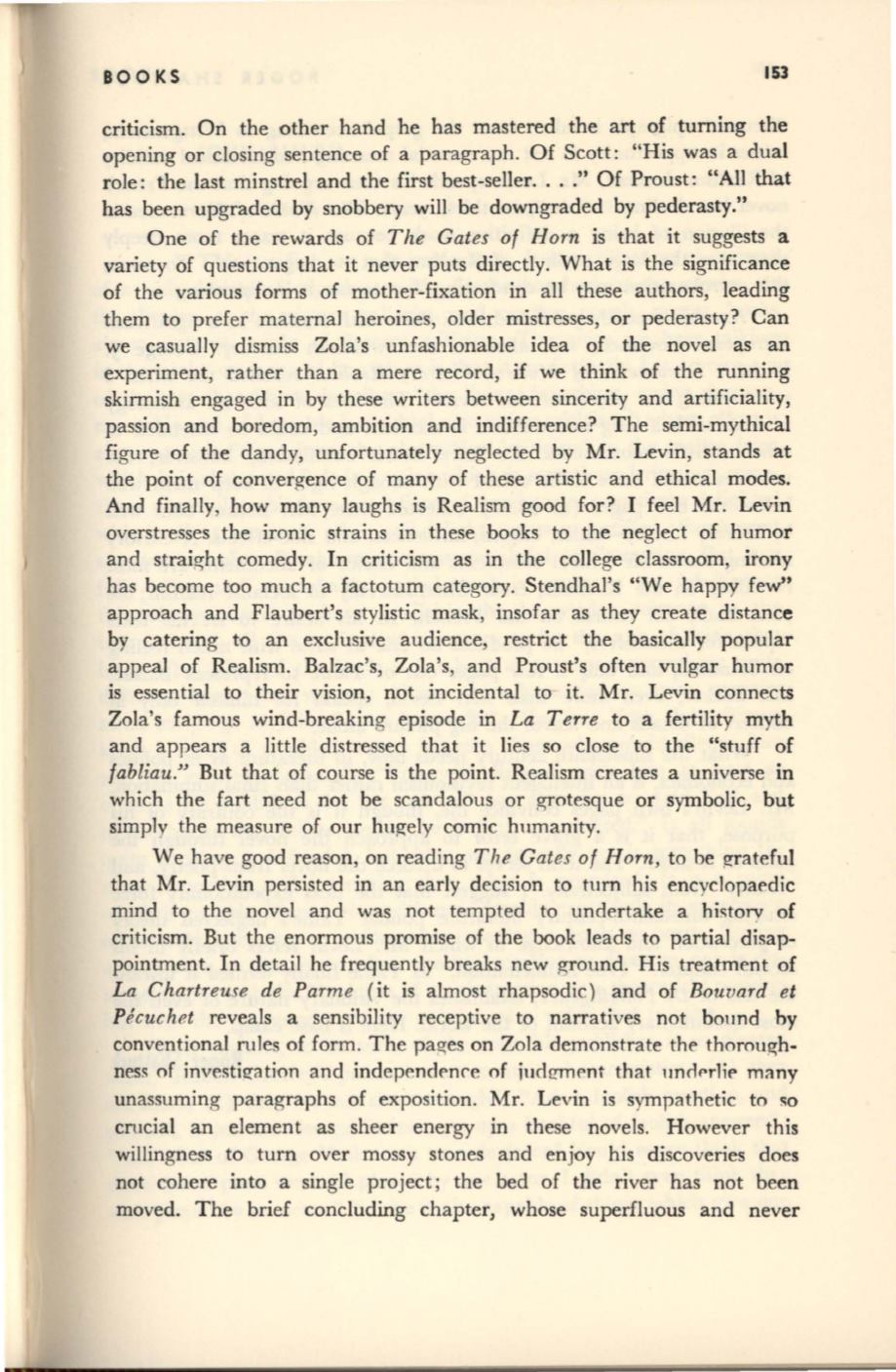
BOO KS
153
CritIcism. On the other hand he has mastered the art of turning the
opening or closing sentence of a paragraph. Of Scott: "His was a dual
role : the last minstrel and the first best-seller...." Of Proust: "All that
has been upgraded by snobbery will be downgraded by pederasty."
One of the rewards of
The Gates of Horn
is that it suggests a
variety of questions that it never puts directly. What is the significance
of the various forms of mother-fixation in all these authors, leading
them to prefer maternal heroines, older mistresses, or pederasty? Can
we casually dismiss Zola's unfashionable idea of the novel as an
experiment, rather than a mere record, if we think of the running
skirmish engaged in by these writers between sincerity and artificiality,
passion and boredom, ambition and indifference? The semi-mythical
figure of the dandy, unfortunately neglected by Mr. Levin, stands at
the point of convergence of many of these artistic and ethical modes.
And finally, how many laughs is Realism good for? I feel Mr. Levin
overstresses the ironic strains in these books to the neglect of humor
and straight comedy. In criticism as in the college classroom, irony
has become too much a factotum category. Stendhal's "We happy few"
approach and Flaubert's stylistic mask, insofar as they create distance
by catering to an exclusive audience, restrict the basically popular
appeal of Realism. Balzac's, Zola's, and Proust's often vulgar humor
is essential to their vision, not incidental to it. Mr. Levin connects
Zola's famous wind-breaking episode
in
La Terre
to a fertility myth
and appears a little distressed that it lies so close to the "stuff of
fabliau ."
But that of course is the point. Realism creates a universe in
which the fart need not be scandalous or grotesque or symbolic, but
simply the measure of our hugely comic humanity.
We have good reason, on reading
The Gates of Horn,
to be grateful
that Mr. Levin persisted in an early decision to turn his encyclopaedic
mind to the novel and was not tempted to undertake a history of
criticism. But the enormous promise of the book leads to partial disap–
pointment. In detail he frequently breaks new ground. His treatment of
La Chartreuse de Parme
(it is almost rhapsodic) and of
Bouvard et
Pecuchet
reveals a sensibility receptive to narratives not bound by
conventional rules of form. The
pa~es
on Zola demonstrate the thorough–
ness of investi!!tltion and independence of imig-ment that unnl'rlie m;my
unassuming paragraphs of exposition. Mr. Levin is sympathetic to so
crucial an element as sheer energy in these novels. However this
willingness to turn over mossy stones and enjoy his discoveries does
not cohere into a single project; the bed of the river has not been
moved. The brief concluding chapter, whose superfluous and never


